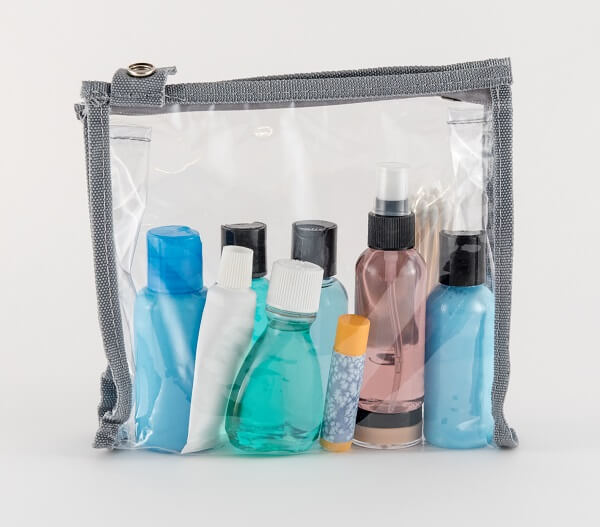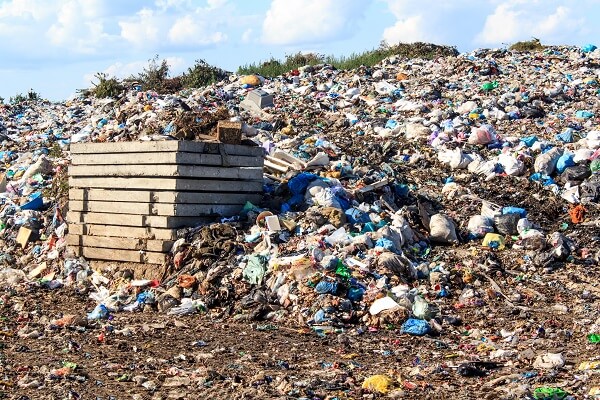Are You Travelling Sustainably? Twelve of the Biggest Makes Made by Travellers and How to Avoid Them
In this day and age, living sustainably is incredibly important. Over the last few years, many of us have made small changes to our everyday life in order to do our bit for the planet, but there’s still loads more to be done. One area that we may not instantly consider making changes to, but would make a huge difference, is how we travel. With global tourism at a record high, doing small things we consider harmless could end up being very costly for the environment. But if you’re travelling for the first time, you may not necessarily know what these things are, and they may even surprise you. So, we’ve put together twelve of the most common mistakes travellers make, and how you can avoid them in order to make your travels not only a memorable experience, but also an eco-friendly one.
1: Not Doing Your Research
Not doing your research properly has a fair few consequences, the most popular being that you could waste money, or end up staying somewhere that looks as though it’s made a couple of appearances on Hotels From Hell. However, did you know that not doing your research could have an impact on how sustainable your trip is? By automatically going for the cheapest or highest rated options, you could end up contributing to factors such as overcrowding, and leaving a rather large carbon footprint. Doing a little research into things like your destination, accommodation and the activities you do can make a whole lot of difference when it comes to ensuring you’re travelling ethically, so it’s worth putting the time in!
2: Visiting Countries That Are Already Overcrowded
Of course, we all have priorities that determine what destinations we’d like to visit, but if you want to really do your bit, one of your priorities should be your environmental footprint. You may want the tourist experience, but visiting somewhere that’s overcrowded with tourists is likely to cause more harm than good. Not to mention the locals won’t be best pleased either! It’s also worth considering destinations that have a greater need for tourism. Certain countries rely heavily upon tourism for their economy, such as Egypt, Nepal and Brazil. However, events such as natural disasters and political conflict will undoubtedly have a negative impact and deter many tourists from visiting. Now, we’re not saying you should go somewhere that’s downright dangerous! What we are saying, however, is that you shouldn’t let said events put you off a destination if it’s somewhere you want to visit.
3: Flying with Too Many Stop Overs
When it comes to long haul destinations, booking non-stop flights is also another way to reduce your carbon footprint. Aeroplane take-offs and landings are what create the most carbon emissions, so the less stopovers you have, the better! You can also look into alternative methods of transport such as train or ferry too, depending on where you’re going. Another option is to reduce your itinerary a little and go to fewer places, but spend longer in each one. While you may want to get as many countries as you can under your belt, this isn’t always the most eco-friendly way to go travelling. Plus, spending longer in one place means that you can really immerse yourself in the culture and take your time to see everything there is to see!
4: Not Staying in ‘Green’ Accommodation
While price may be a big factor when it comes to booking your accommodation, not doing your research can mean you end up staying somewhere that doesn’t always look out for the planet. In addition, staying at large hotel chains may be the cheaper option for most, but this isn’t exactly great for the local community, so make your choices wisely. Staying in local, independently run hotels and hostels is one way to ensure you support the community where you’re staying, or you can look into alternative options such as camping or Air B&Bs. If you prefer to stay in a hotel or hostel, look for places certified by organisations such as Rainforest Alliance or the Global Sustainable Tourism Council, as they’ll be recognised for having high environmental standards.
5: Harmful Tours & Excursions
Of course when you go travelling, undoubtedly you’ll want to enjoy a few excursions and activities along the way. However, booking the cheapest or even the first thing you see may not always work in your (or the environment’s) favour. Travelling with large chain tour operators can do more harm than good, so be sure to look into smaller, local operators instead as they will have less of an environmental impact.
When it comes to animal related excursions, a big no-no is booking activities that promise ‘hands-on’ animal encounters. While riding an elephant will be a fabulous photo for the ‘Gram, you actually could be supporting industries that illegally capture and mistreat animals. However, because of this, safari parks that focus on the wellbeing of animals are becoming increasingly more popular, so there is still an option for you to see some of the world’s most majestic animals in their natural habitats. Why not check out our guide to Ethical Safaris to find out more?
What about Marine tourism? While swimming with dolphins or watching them perform may be a popular travel experience, you’ll likely be supporting an industry that keeps these marine animals in captivity. Similarly, if you arrange scuba diving or snorkelling excursions, ensure your operator doesn’t chu
m the water. While it’s commonly used to attract the marine wildlife, it can actually make them sick or even change their behaviour. In addition, even the tiniest things like touching coral or sediment when scuba diving can disrupt the reef’s ecosystems, so ensure you only look, don’t touch!
6: Overbuying & Overpacking
Let’s face it, we all like to be prepared for anything when we set off on our travels, right? I’m sure many of us are guilty of stocking up on travel miniatures before heading off on even a weekend trip, but this is incredibly wasteful, especially when you’ve got plenty of supplies at home already. Pair th
at with ignoring the hand luggage rules when flying, and you could be contributing to mounds and mounds of waste every year. Despite it being a regulation at airports for the last 10+ years, airport staff still throw away shed loads of products every single day through travellers forgetting the liquid allowance. This can easily be avoided by decanting any liquids into reusable travel sized bottles, which you can pick up easily for a few quid. All bottles in these kits fit within the 100ml rule, and you can even buy ones that come with a clear pouch to store them in, meaning there’s no need for a plastic bag.
Similarly, a lot of us can get caught up in the excitement of ‘holiday shopping,’ buying items such as clothing which you probably only wear once, which again is pretty wasteful. Make sure you raid your wardrobe good and proper before you set out to buy any new clothing for your trip, and if you do, look for sustainable brands and try to buy items you know you can wear again when you return!
If you want to go a step further with doing your bit while you go away, look into initiatives such as Pack for a Purpose. This involves dedicating a little of your luggage space to supplies that are needed for community projects around the world. Simply choose your destination, and you can view a list of projects and the supplies they need, such as educational materials, first aid supplies and clothing.

7: Buying Single Use Plastics
The fight against single use plastics has well and truly increased over the last few years, with many of us switching to reusable products for our everyday life. So why do we suddenly go back to single use items when we travel? The war on plastics is a global issue, so we should all be doing our bit no matter where we’re headed to.
A reusable water bottle is an incredibly easy way to reduce your plastic usage as you travel, especially for those of us travelling in hot climates as it’s important to keep hydrated. However, there will undoubtedly be areas of the world where drinking impurified water is likely to give you an upset stomach quicker than you can say “Where's the loo?” Thankfully, there’s a way around this. Water purifying tablets are one way to ensure your water is safe to drink, but there’s also a few nifty gadgets you can invest in too. For example, SteriPEN is a portable water purifier that uses UV light to destroy 99.9% of bacteria.

8: Heavily Chemicalled Toiletries & Disposable Products
If you’re going somewhere where there’s nowhere to charge your electric toothbrush, instead of buying a plastic one opt for a Bamboo one instead. Not only will it last throughout the duration of your trip, it’s biodegradable so you can pop it into the compost when you return. Ladies can also consider investing in a menstrual cup, particularly if you’re travelling for a few months. Not only will it produce zero waste, which is way better for the environment, but it will save a fair bit of room in your luggage!
Certain soaps, suncreams, and even insect repellents can contain harsh chemicals which could harm the environment, so it’s important to be considerate of your toiletries when you travel. Using Vegan, natural, and organic soaps and shower gels are a small way you can care for the planet on your travels, as they won’t harm the environment when washed away. You can even opt for all in one soap too, which has the added benefit of less waste.
9: Being a Bad Tourist
We’ve all been guilty of being a ‘typical tourist.’ You know the sort, taking too many selfies, ignoring local customs, not learning the language! If you take a little time to research local customs and general etiquette of the places you visit, you’ll notice a real difference in how the people of the community engage with you. When it comes to learning the language, we’re not saying to start going to an evening class or anything, but just learning a couple of basic phrases such as your “please” and “thank-yous,” along with “my name is…” and “can you help me find…” will make a huge difference in how you interact with the local community.
When it comes to photos, again, while stuff may look good on the ‘Gram, be considerate of any passers-by. Taking photos of people is considered disrespectful in certain cultures, so ensure you ask permission before doing so!
10: Choosing Corporations Over Culture
With a lot of companies having a huge global presence, it can be tempting to head straight for your chain restaurants and hotels. Being that traveller who heads straight for a Big Mac over the local cuisine isn’t going to immerse you in the culture, no matter how much you try! By going to bigger chain restaurants too, you’re not giving much support to the community either, so jump in and head to some of the local eateries!
11: Buying Mass Produced Souvenirs
Of course, you’ll want to bring home plenty of memories from your trip, but shopping at the wrong places may mean you end up supporting larger companies as opposed to businesses within the local community. Tacky, mass-produced souvenirs will have been shipped in with a much larger carbon footprint, so opt for locally made products from smaller businesses instead. Remember not to buy products made from endangered plants and animals either, and of course, remember your reusable carrier bags!
12: Binning What Can Be Recycled
One final thought in how you can be more eco-friendly on your travels, is around all those maps and leaflets you may accumulate. How often do we just throw them in the bin at the end of a trip? It’s such a tiny thing, but with all of us doing it, that equates to a heck of a lot of wasted paper. The obvious solution would be to look for recycling facilities in your accommodation, or you could even get a little creative. Instead of buying mementoes of your trip, why not collect up any tickets, leaflets and maps you use and bring them home with you to put into a scrapbook? Mix them with photos you’ve taken and you’ve got a truly unique way of remembering the experience, without buying novelty keyrings and bottle openers!
Hopefully this has given you some food for thought when it comes to arranging your travel plans. Here at Alpha Travel Insurance, as well as ensuring you’re well prepared during your trip, we’re also passionate about sustainable travel too. That’s why you’ll see that our Activity Packs contain no activities that are harmful to animals, along with our partnership with the WDC (Whale and Dolphin Conservation) to ensure the safety of our much loved marine life. If you’ve been inspired to have some eco-friendly adventures, be sure to follow these tips and you’ll help to make a difference in preserving our planet!
 Written by Amy Jackson - Content Writer at My Favourite Voucher Codes - 29th November 2019
Written by Amy Jackson - Content Writer at My Favourite Voucher Codes - 29th November 2019







